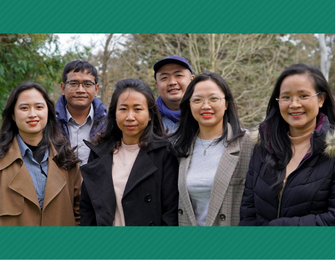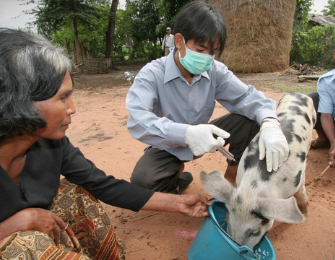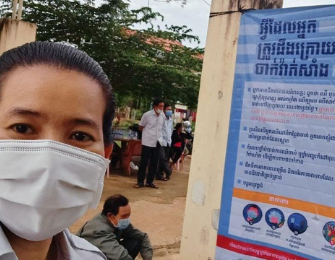The Asia-Pacific region has made tremendous progress against malaria in recent years with a 65% reduction in malaria cases in the region since 2010. In 2019, an estimated 9 million people in our region were infected with malaria. The malaria burden is now disproportionately borne by three countries – India, Papua New Guinea (PNG) and Indonesia – that together account for over 80% of all estimated malaria cases in the region.
One of the main barriers to the regional goal of achieving elimination is the prevalence of vivax malaria, which is harder to treat than other forms of malaria. While less deadly that the falciparum species of malaria, vivax malaria parasites can lie dormant in a person’s liver and cause relapsing infection, resulting in greater risk of ongoing transmission. New treatments and diagnostic tools are currently becoming available to complement old treatment regimens and countries need to be adequately prepared for the roll out of these novel tools. Across the region, malaria is increasingly concentrated among vulnerable and hard to reach populations, particularly in border regions.
As malaria recedes away from national capitals, maintaining political commitment and support for malaria may become increasingly challenging. With dedicated investments and support from partners, countries in the Greater Mekong Subregion have made significant progress in addressing drug-resistant malaria. Their progress towards elimination will be accompanied by reductions in donor financing. This poses challenges for the sustainability of the region’s malaria response and places pressure on the need to increase domestic financing for malaria.
Across Asia Pacific, a total of 22 malaria endemic countries are members of APMEN: Afghanistan; Bangladesh; Bhutan; Cambodia; China; DPR Korea; India; Indonesia; Lao PDR; Malaysia; Myanmar; Nepal; Pakistan; Papua New Guinea; the Philippines; Republic of Korea; Solomon Islands; Sri Lanka; Thailand; Timor-Leste; Vanuatu; Vietnam.
A total of 23 Heads of State have endorsed the APLMA Malaria Elimination Roadmap, including 16 malaria-endemic countries: Cambodia; China*; India; Indonesia; Lao PDR; Malaysia; Myanmar; Pakistan; Papua New Guinea; Philippines; Republic of Korea; Solomon Islands; Thailand; Timor-Leste; Vanuatu and Vietnam. *China was declared malaria-free in 2021.
PARTNERSHIP
Formed at the 2013 East Asia Summit - at the initiative of co-chairs Australia and Vietnam - the Asia Pacific Leaders Malaria Alliance (APLMA) is a high-level initiative for collective action to eliminate malaria across Asia and the Pacific by 2030.
The APLMA Malaria Elimination Roadmap was developed in 2015 as a framework to achieve regional malaria elimination, aligned to national and World Health Organization malaria strategies. The Asia Pacific Malaria Elimination Network (APMEN), co-located with APLMA, was launched in February 2009 . The network brings together around 20 Asia-Pacific national malaria programs and 50 partner institutions (academic, non-profit, and private sector organisations) committed to realising malaria elimination in the region, and facilitates increased collaboration around advocacy, capacity building, information sharing and evidence generation.
The APMEN and APLMA Secretariats were brought together in 2015 to strengthen elimination efforts by combining APLMA’s political advocacy and multi-sectoral access, with APMEN’s technical expertise and direct engagement with malaria control programs. A refreshed organisational strategy positions APMEN/APLMA jointly as critical parts of an integrated regional platform committed to achieving malaria elimination through advocacy and outreach; fostering and strengthening partnerships and innovative approaches; and providing policy guidance and promoting knowledge exchange.
Collectively, APMEN and APLMA act as an ‘evidence to policy’ vehicle that connects directly to leadership across the region. The new strategic plan is designed to facilitate more effective and efficient APMEN support to develop regional and country-level capacity and support more intentional political advocacy and resource mobilization efforts by APLMA (that is grounded in evidence generated by APMEN) to achieve elimination targets. The joint APLMA/APMEN Secretariat is based in Singapore.




